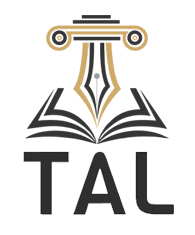Revolutionizing the Legal Landscape: AI's Role in Shaping Modern Legal Practice

With
an emphasis on the groundbreaking possibilities of artificial intelligence (AI)
innovations like deepfakes and generative AI, this study investigates the nexus
between artificial intelligence (AI) and the legal sector. The first section
explores the topic of deepfakes, looking at how machine learning algorithms are
used to create them and the consequences they have in both positive and
negative situations. Although deepfakes can improve the production of media and
instructional materials, there are serious concerns associated with them,
including fraud, misrepresentation, and invasions of privacy. Laws to prevent
the unlawful use of deepfakes are being implemented in a number of
jurisdictions as an answer to these difficulties.
The
project's second section changes its emphasis to the use of AI in legal study
and application. Artificial intelligence (AI) technologies such as Westlaw Edge
and Case Text use processing of natural languages to provide accurate
information rapidly, thus streamlining legal study. Generative AI has enormous
possibilities for legal document writing, study, due diligence, and litigation
assistance. It can generate fresh material using learnt data patterns. But
incorporating AI into the legal profession brings up ethical issues such as
prejudice, secrecy, and the requirement for openness.
The
study also demonstrates, through instances like the Supreme Court's SUPACE
program or the Manipur High Court's usage of ChatGPT, the particular influence
of AI on the Indian legal system. Although AI has the potential to improve
efficiency and accuracy in the legal sector, issues like the possibility of
false data and the lack of rules and regulations need to be resolved to
guarantee its moral and practical application.
